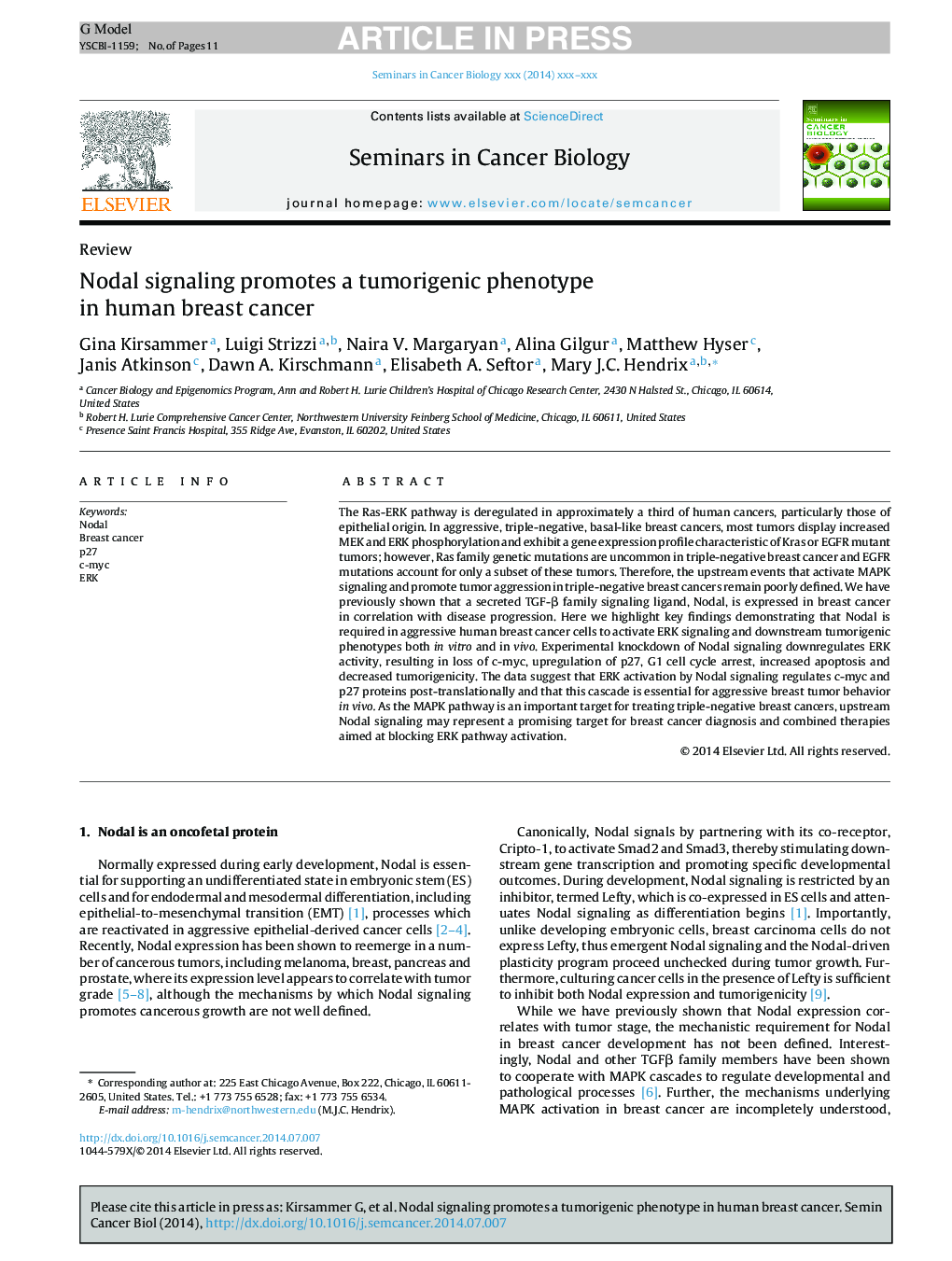| Article ID | Journal | Published Year | Pages | File Type |
|---|---|---|---|---|
| 8362325 | Seminars in Cancer Biology | 2014 | 11 Pages |
Abstract
The Ras-ERK pathway is deregulated in approximately a third of human cancers, particularly those of epithelial origin. In aggressive, triple-negative, basal-like breast cancers, most tumors display increased MEK and ERK phosphorylation and exhibit a gene expression profile characteristic of Kras or EGFR mutant tumors; however, Ras family genetic mutations are uncommon in triple-negative breast cancer and EGFR mutations account for only a subset of these tumors. Therefore, the upstream events that activate MAPK signaling and promote tumor aggression in triple-negative breast cancers remain poorly defined. We have previously shown that a secreted TGF-β family signaling ligand, Nodal, is expressed in breast cancer in correlation with disease progression. Here we highlight key findings demonstrating that Nodal is required in aggressive human breast cancer cells to activate ERK signaling and downstream tumorigenic phenotypes both in vitro and in vivo. Experimental knockdown of Nodal signaling downregulates ERK activity, resulting in loss of c-myc, upregulation of p27, G1 cell cycle arrest, increased apoptosis and decreased tumorigenicity. The data suggest that ERK activation by Nodal signaling regulates c-myc and p27 proteins post-translationally and that this cascade is essential for aggressive breast tumor behavior in vivo. As the MAPK pathway is an important target for treating triple-negative breast cancers, upstream Nodal signaling may represent a promising target for breast cancer diagnosis and combined therapies aimed at blocking ERK pathway activation.
Keywords
Related Topics
Life Sciences
Biochemistry, Genetics and Molecular Biology
Biochemistry
Authors
Gina Kirsammer, Luigi Strizzi, Naira V. Margaryan, Alina Gilgur, Matthew Hyser, Janis Atkinson, Dawn A. Kirschmann, Elisabeth A. Seftor, Mary J.C. Hendrix,
